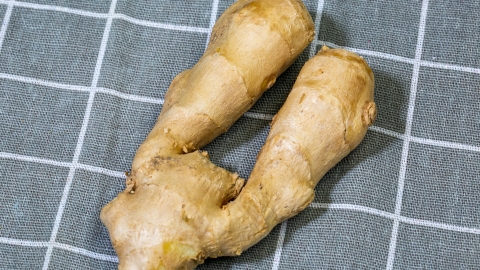Can I eat ginger after appendix surgery?
Whether ginger can be consumed after appendectomy depends on the postoperative recovery stage and gastrointestinal function. It may be consumed in small amounts when recovery is progressing well and the gastrointestinal system is adapting. However, it is not recommended during the early postoperative period or when the gastrointestinal system is sensitive. If any abnormalities occur, prompt medical attention is advised. Detailed explanation is as follows:

If it has been 1-2 weeks since the appendectomy, and the patient has resumed normal bowel movements and排气 (gas passage), without symptoms such as abdominal pain or bloating, and gastrointestinal motility has returned to normal, small amounts of thoroughly cooked ginger may be consumed. The pungency of ginger decreases after high-temperature processing, and moderate consumption can help warm the stomach, aid digestion, and improve the flavor of food when used as a seasoning. However, the quantity must be strictly controlled to avoid excessive spiciness and irritation.
During the first 1-3 days following appendectomy, intestinal function has not fully recovered and remains relatively fragile. Ginger is a spicy and irritating food that can stimulate the gastrointestinal mucosa, increase the digestive burden on the stomach and intestines, and potentially lead to symptoms such as nausea, vomiting, and abdominal pain. It may also interfere with wound healing. Additionally, patients with inherently weak gastrointestinal function or sensitivity to spicy foods may experience discomfort even if more time has passed post-surgery. In such cases, ginger should be avoided.
After appendectomy, ginger should be introduced gradually. Only after full recovery of gastrointestinal function should small amounts be cautiously tried, starting with minimal quantities of well-cooked ginger. Priority should be given to bland, easily digestible foods during recovery, with a gradual transition to more regular meals to support overall healing.











